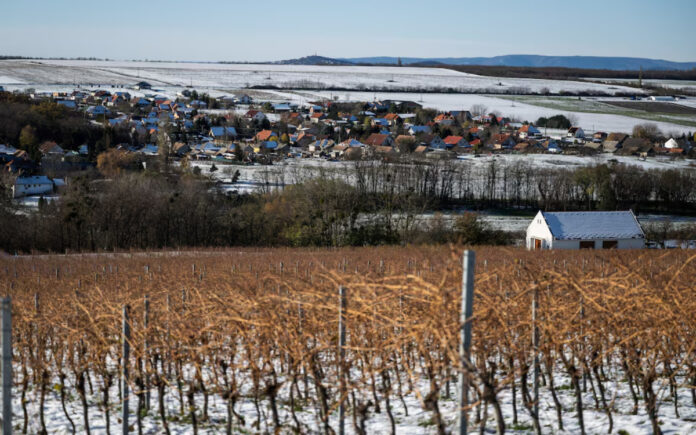Szolosgyorok, Hungary: Andre Iwan, a 55-year-old former construction foreman, and his wife recently relocated from eastern Germany to the Hungarian village of Szőlősgyörök near Lake Balaton. The move was driven by dissatisfaction with high taxes and a growing sense of alienation in Germany, where they felt like “second-class citizens.”
The couple initially purchased a plot of land in Hungary in 1998, intending it as a retirement haven. However, political and social shifts in Germany hastened their decision to leave. “With the policies that have taken place… with Angela Merkel’s 2015 refugee invasion, you could see the situation was getting worse and worse every year,” Iwan remarked, reflecting sentiments often echoed in right-wing circles.
Hungary’s Appeal: Affordability and Anti-Migrant Policies
Hungary, under Prime Minister Viktor Orbán’s leadership, has become an attractive destination for thousands of German retirees. Low living costs and affordable housing are key draws, but for some, Orbán’s strong anti-immigration stance also resonates.
Official Hungarian data shows approximately 22,100 Germans living in Hungary as of 2022, with a significant portion over 60 years old. Many newcomers perceive Hungary as safer and more stable compared to Germany.
“For them, Hungary is a safe country,” said Monika Varadi, a sociologist at Hungary’s HUN-REN Centre for Economic and Regional Studies. “They can live here fairly cheaply, find housing, and (they say) there are no migrants… They perceive the situation in Germany as a crisis.”
However, statistics suggest otherwise. Hungary’s crime rates are comparable to Germany’s, and both countries rank low in life satisfaction across Europe.
Broader Context of Migration
While retirees move to Hungary, hundreds of thousands of Hungarians have headed to Germany for better work and education opportunities. Experts suggest the German retirees’ migration is fueled by a mix of practical concerns—like stretching pension incomes—and ideological factors, including Hungary’s promotion as a bastion against Western Europe’s liberal immigration policies.
Kristóf Szombati, an anthropologist at Berlin’s Humboldt University, highlighted how Hungary’s government and far-right media amplify this image, portraying the country as a counterweight to Germany’s alleged pro-immigration liberalism.
Also Read | $1.8 Billion IPO: LG Electronics India Seeks to Leverage Booming Market
Pro-government media in Hungary has welcomed German émigrés, viewing their arrival as evidence of the nation’s appeal and success.
Disillusionment and the Search for Stability
The pandemic, geopolitical uncertainties, and economic challenges have amplified feelings of insecurity, driving some Germans to seek refuge in Hungary. “The pandemic, war, and economic dislocation have all heightened people’s sense of uncertainty, fueling a desire to bolt for imagined safety,” said Nikolas Lelle of the Antonio Amadeu Foundation, a German anti-racism think tank.
Juergen Wichert, another retiree from eastern Germany, relocated to the Hungarian town of Gyenesdiás near Lake Balaton. He shares Orbán’s conservative views and expressed optimism about political shifts in the U.S. after Donald Trump’s electoral success.
Also Read | Iraq Faces Dilemma Over Possible Syria Intervention Amid Rebel Advances
“I take a very critical view on the developments in Germany,” Wichert said. “Only when the economy sinks further, when the middle class deteriorates again, then perhaps there will be a rethinking and then there can also be a change, as there is now in America.”
Mixed Realities for German Retirees
While Hungary offers financial advantages and a political climate some find appealing, it remains uncertain whether the realities of life there match the promises that drew retirees from Germany.



